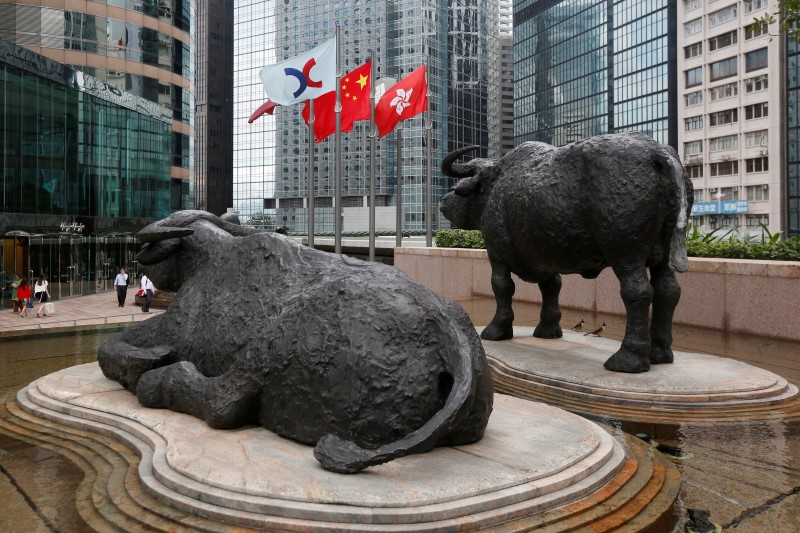By Ambar Warrick
Investing.com -- Most Asian stocks rose on Tuesday amid bets that Federal Reserve Chair Jerome Powell will not strike as hawkish a tone as feared during a testimony later in the day, while Chinese stocks kept to a tight range as fears of worsening Sino-U.S. ties added to concerns over a slow economic recovery.
China’s Shanghai Shenzhen CSI 300 and Shanghai Composite indexes moved less than 0.2% in either direction, as Foreign Minister Qin Gang warned of increased conflict with the U.S. if Washington does not change its rhetoric against the Asian giant.
The warning rattled sentiment towards China, with traders largely looking past data showing record trade surplus in February.
But China’s imports shrank far more than expected during the month, indicating that local demand still remained weak despite the lifting of most anti-COVID restrictions this year.
The weak import reading, coupled with a softer-than-expected GDP outlook for the year, brewed some concerns over the scale of an economic rebound in the country this year.
Still, most other China-exposed markets rose.
The Taiwan Weighted index and South Korea’s KOSPI advanced 0.5% and 0.4%, respectively, while Hong Kong’s Hang Seng index was the best performer for the day, rallying 1.2% on strength in heavyweight oil and technology stocks.
Japan’s Nikkei 225 index rose 0.5% as data showed that wage growth in the country fell more than expected in January, which likely puts less impetus on the Bank of Japan to tighten monetary policy.
Risk-heavy Southeast Asian stocks rose, with Thailand’s SET Index rising 0.9% in catch-up trade. Consumer price index inflation in the country also read lower than expected for February, heralding a less hawkish stance from the Thai central bank.
Broader Asian markets cautiously advanced, amid some expectations that cooling U.S. economic growth will push Powell into dulling his hawkish rhetoric during a two-day testimony to Congress.
But unexpected resilience in the U.S. jobs market, coupled with higher-than-expected inflation readings for January could still see the Fed stick to its hawkish stance. Focus this week is also on nonfarm payrolls data for February, due Friday.
Any continued signs of strength in the labor market are likely to further the case for more rate hikes, a scenario that bodes poorly for risk-heavy Asian stock markets. Rising interest rates had battered regional markets through 2022, and have so far limited a recovery in the space this year.
Australia's ASX 200 index added 0.5% on Tuesday, even as the Reserve Bank hiked rates by 25 basis points and said more hikes were due. But the bank's outlook on monetary policy was largely within market expectations.
